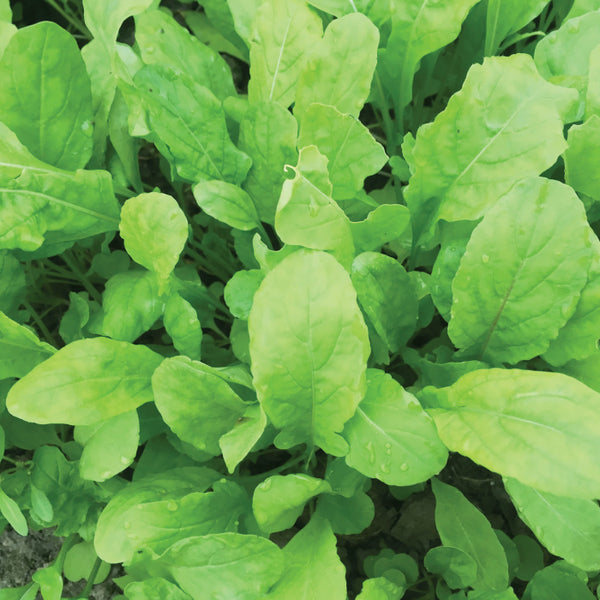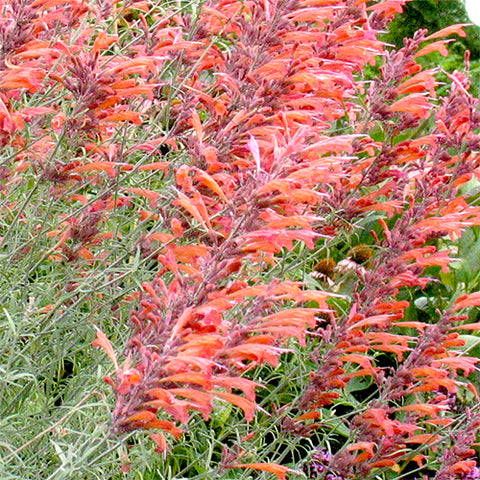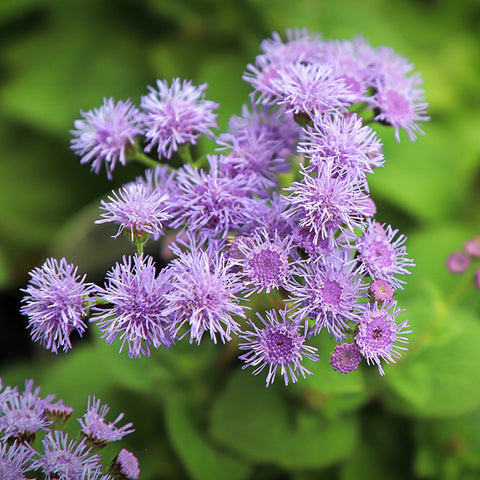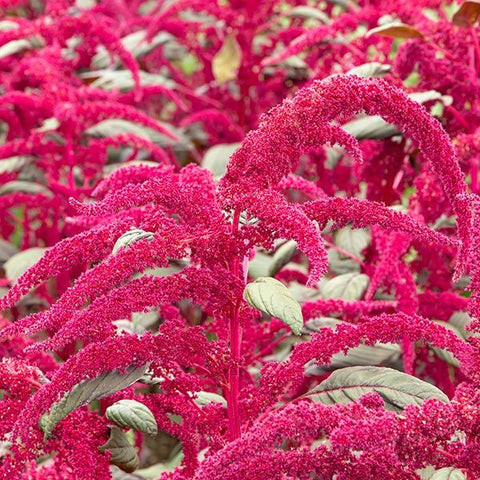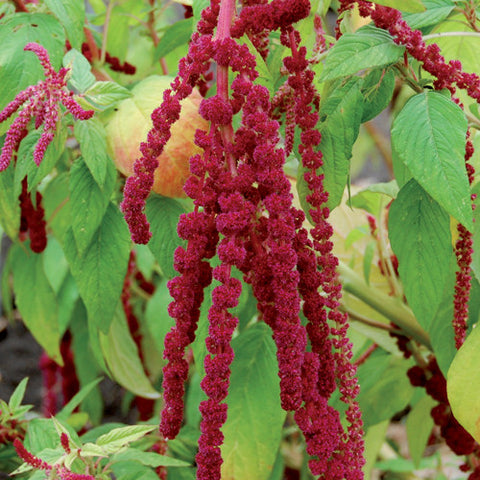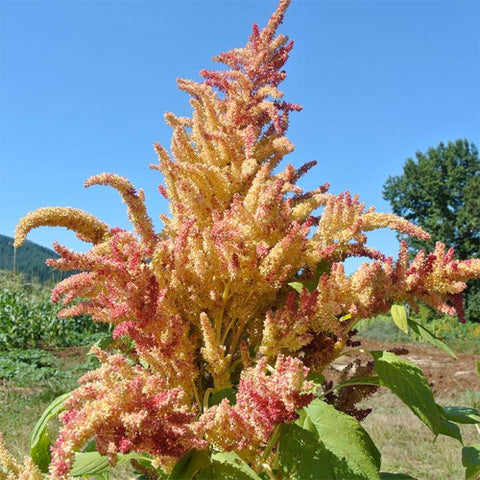Arugula (Certified Organic Seeds)
$4.59
This item may be out of season or currently out of stock. Please check back.
Description: Arugula has a peppery, nutty flavour that easily transforms an everyday salad or sandwich into a gourmet offering.
Certified Organic by Ecocert Canada/ Heirloom/ Open Pollinated/ Non-GMO
Pack Size: 1000 seeds
Latin Name: Eruca sativa
Main Uses: Culinary herb, Salad green
Zone Hardiness: Annual (Reseeding) Days to maturity: 21 - 28 days for baby greens or 40 days for full-size
Exposure: Full sun to part shade
Certified Organic: Ecocert Canada
Germination: 5 - 7 days at 18 degrees celcius
Sowing: Indoors 2 - 3 weeks before planting out or anytime March to October for indoor pots. Sow a good “pinch” per plug cell. Apply Sea Magic from first watering and then from the second set of true leaves to time of transplanting, alternate between Sea Magic and seed-starting fertilizer (such as Evolve) once per week. Outdoors, direct seed mid-May onwards (provided soil has warmed). Sow every 3 weeks for continual harvest.
Planting Depth: Cover lightly.
Spacing: Space transplants 8” - 12” apart, or direct seed in rows.
Planting Out: Plant in well-drained fertile soil once seedlings are established.
Growing Tips: Arugula matures quickly, so multiple sowings will be required for continual harvests through the summer.
Pruning: Harvest young plants with sharp scissors.
Harvesting: Harvest young leaves as they emerge. Plants can be cut heavily a few times; multiple sows will ensure a constant supply.
Fruiting: Flowers are edible.
Growing in Containers: Arugula can be grown in pots 8" and up.
Fertilizing (Containers): Add approximately 25% quality compost to your potting mix. No additional fertilizer is typically required.
Watering (Containers): Water deeply when the top inch of soil feels dry to the touch. Check every day or two during very hot weather.
Growing in Mixed Planters: Arugula can be grown successfully in large containers or barrels.
Fertilizing (Garden): Add quality compost to your garden bed before planting.
Watering (Garden): Water young plants daily to get them established, then water only as required.
Garden Companions:
- Vegetable Companions: Bush Beans, Beets, Carrots, Celery, Cucumber, Dill, Lettuce, Mint, Nasturtium, Onion, Potato, Rosemary, Spinach, and Thyme
- Avoid: Planting near Strawberries
Special Requirements for Cold Climate Gardeners: This is a cool weather plant that doesn't thrive in very hot conditions.
Pest/Disease Issues: Flea Beetles may be a concern in your area; protect plants with floating row covers.
Suitability for Indoors: Not well-suited for indoors, except as a microgreen.
What about Grow Lights? Fluorescent T5 grow lights are recommended for growing Arugula indoors during the winter months.
General Indoor Care: Fresh seed can be sown in fall under lights. Plan for multiple sows through the winter to ensure a steady supply of the most tender leaves.
Indoor Container Suggestions: Arugula can be grown indoors in 4" to 6" pots, provided good drainage holes. If space permits, Arugula can be grown in open nursery flats (perhaps mixed with other leafy greens or herbs grown as microgreens).
Winter Fertilizing: Grow in a potting soil amended with 25% quality compost. No additional fertilizing required.
Winter Watering: Water as soil feels dry to the touch. Check on plants every 1 - 2 days.

